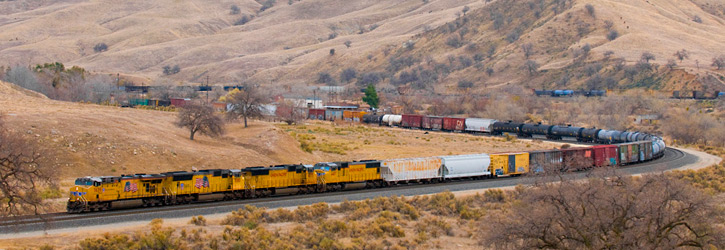
Operations & Service Planning
Railroads of all sizes seek to maximize the efficiency of their operations and the productivity of their assets. RLBA has decades of experience providing clients with superior analyses on current or proposed freight movements, examining all relevant capital and operational factors to enable clients to make informed decisions to support cost-effective solutions.
Select Project Descriptions
GULF COAST RAIL DISTRICT:
RLBA was retained to lead a consulting team to provide rail bypass development and planning assistance in Fort Bend County, Texas. The client envisioned an arrangement with Union Pacific Railroad (UP) under which most freight trains on UP’s mainline between Houston and Rosenberg, TX would be diverted onto a separate, freight bypass corridor, creating capacity to establish commuter rail service on the existing UP line. GCRD retained RLBA and its team to determine what improvements to three prospective bypass corridors (existing and/or greenfield) would be needed so the bypass would match the capacity of the existing UP line and accommodate long-term, freight traffic growth and benefits of the project.
BINGHAMTON METROPOLITAIN TRANSPORTATION STUDY:
As part of a larger study, RLBA conducted a rail freight assessment, which included:
- assessing the ability of the local rail transportation system to accommodate future freight growth and
- developing project or program proposals that addressed future freight rail needs.
RLBA identified constraints on the primary rail routes between Binghamton and other major urban areas and developed recommended projects, programs and strategies to provide sufficient capacity and operating flexibility necessary to accommodate future levels of freight rail traffic, in priority order.
UNITED STATES TRADE DEVELOPMENT AGENCY:
The United States Trade Development Agency (USTDA) engaged a team including RLBA to assist a company in Pakistan with completing a feasibility study to move containerized commodities between the Port of Karachi and inland points. The study centered around the ability of the primarily-passenger Pakistan Railways network to host longer, slower freight trains. RLBA sent a team of experts to Pakistan to determine operational and capacity constraints that face the proposed container train operator.
The team rode trains, met with railway officials and studied operations diagrams to assist in determining the operational feasibility of running the proposed freight services. To address operations planning questions raised during the on-site visit, RLBA undertook construction of a Rail Traffic Controller (RTC) simulation model to test proposed freight trains to gauge optimal train run times, infrastructure capacity and fuel consumption, information crucial to informing equipment selection, train refueling locations and general operations planning.
